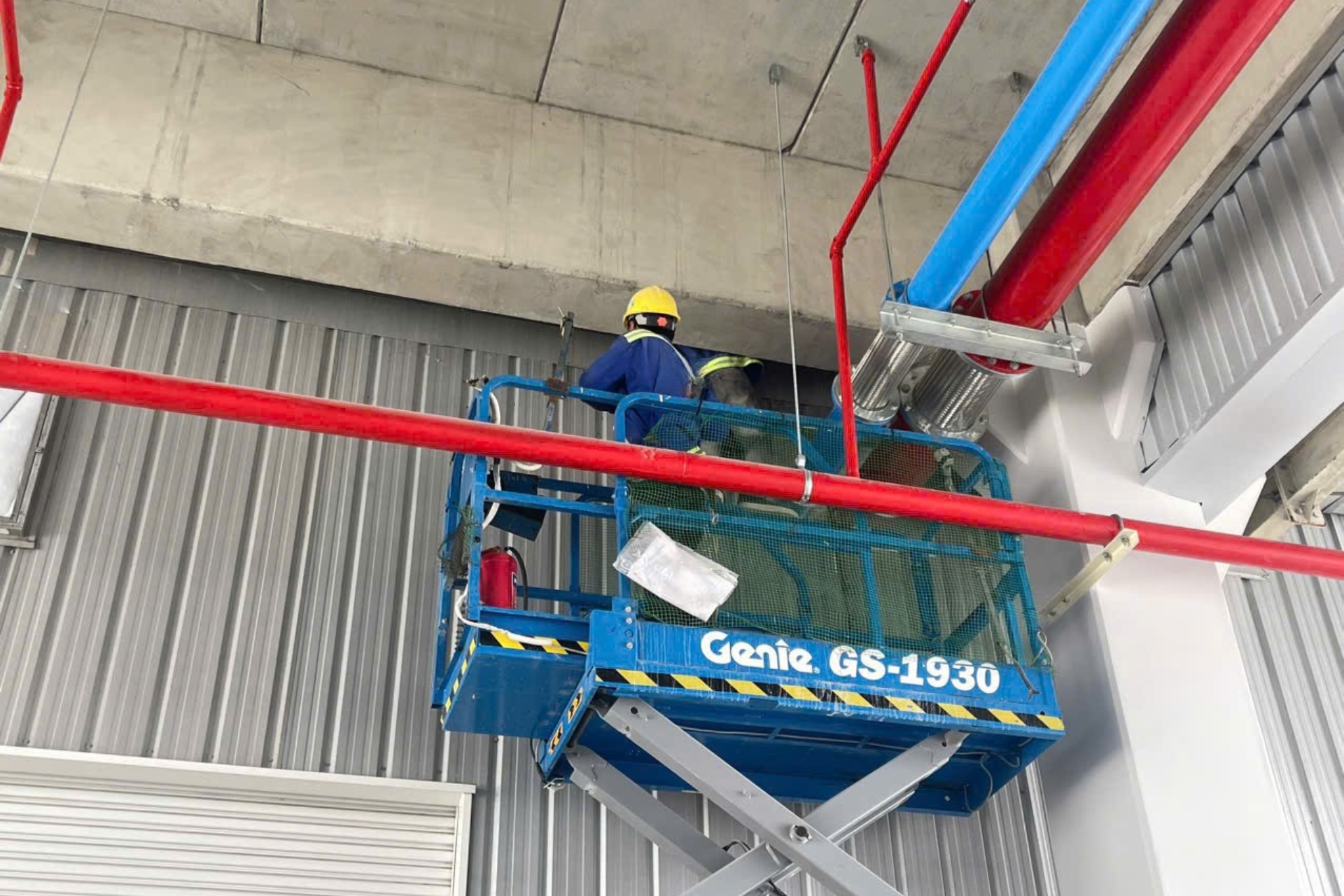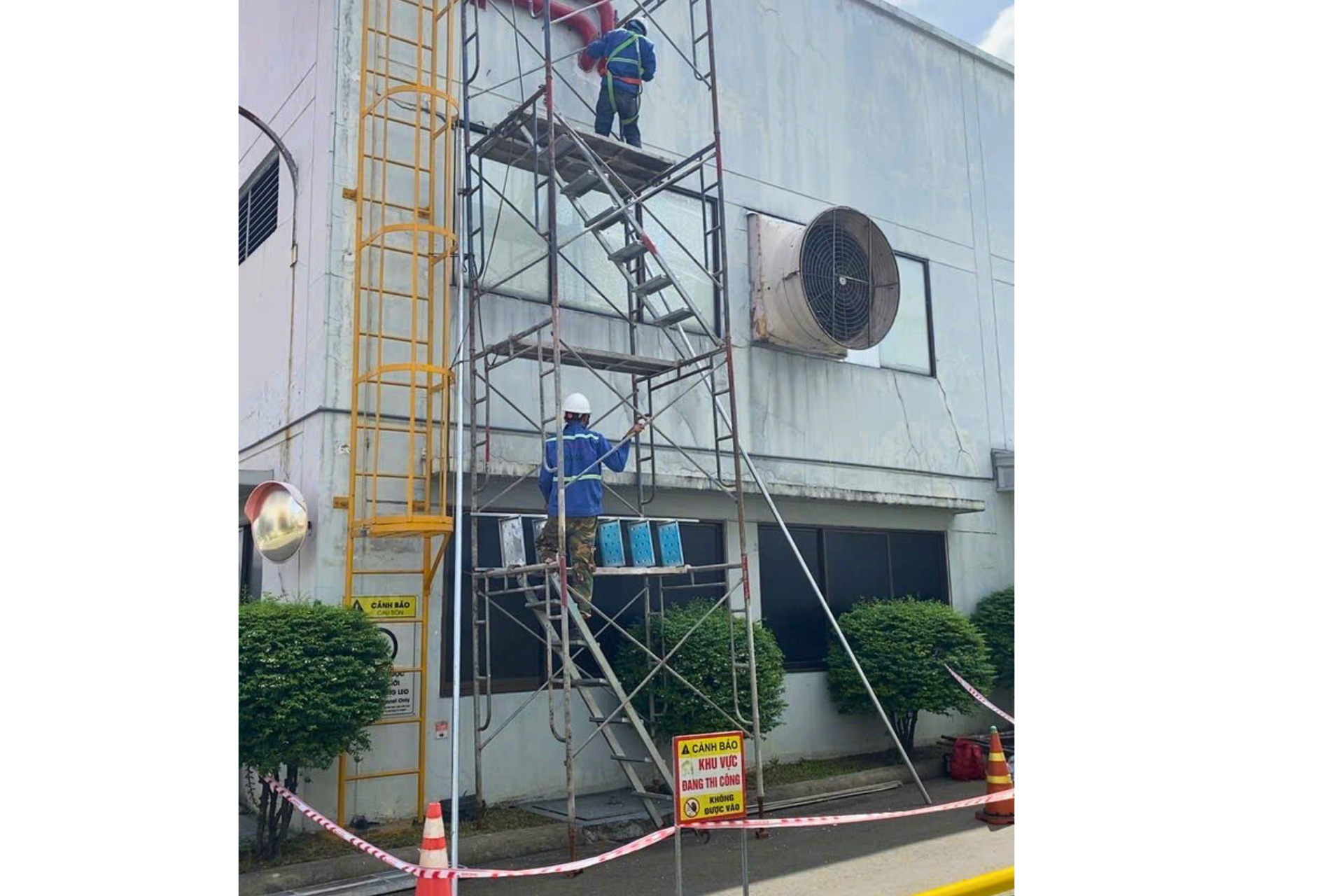
Is It Necessary to Halt Production During Factory Renovation?
During the process of scaling up or upgrading infrastructure, renovating the factory is an essential need for many manufacturing businesses. However, one of the most common concerns is: Is it necessary to completely halt production during renovation? The answer is not entirely clear, as it depends on many factors such as the renovation scale, the level of impact, and relevant legal regulations. Let’s explore the details with TECO in the article below to better understand and find an effective implementation direction, avoiding unnecessary production interruptions.

Is It Necessary to Halt Production During Factory Renovation?
Legal Regulations Related to Halting Operations During Factory Renovation
In reality, there is currently no strict legal regulation that forces businesses to halt production activities during factory renovation. However, businesses must strictly ensure safety factors and comply with relevant regulations, including:
-
Labor safety: According to the Law on Occupational Safety and Hygiene, the renovation process must not pose dangers to workers currently operating in the factory. If safe working conditions cannot be guaranteed, the business may be penalized and required to suspend operations.
-
Structural and construction safety: According to the Construction Law, renovation activities involving load-bearing structures or large-scale construction must be closely monitored. If the project risks subsidence, cracking, or affects the operational area, measures must be taken to prevent or temporarily stop to fix the issue.
-
Fire prevention and fighting (FPF): The fire protection system during renovation must be maintained continuously, not disconnected or affected by construction. If a fire or explosion incident occurs during renovation while the FPF system is not ensured, the business may face serious consequences.
-
Environment: Renovation that causes dust, noise, wastewater, or toxic emissions affecting workers or the surrounding environment will violate the Environmental Protection Law.

Legal regulations related to factory renovation.
Practical Scenarios and the Level of Necessary Production Suspension
Depending on the scope and goal of renovation, businesses can choose to halt or not halt production. Below are three common scenarios:
Case 1: Minor renovation, no impact on structure and operating systems
-
For small renovation items that do not affect the main structure or production lines, businesses do not need to halt all operations.
-
Construction can be carried out by zone, while other areas continue normal operation.
-
Examples: repainting auxiliary areas, installing partitions, upgrading office space inside the factory.
Case 2: Renovation directly impacts production or main structure
-
If the renovation involves demolition, upgrading load-bearing structures, floors, roofs, etc., it is mandatory to temporarily halt part or all production activities, especially in the construction area.
-
Continuing production in such conditions may endanger workers, damage equipment, and violate safety regulations.
-
Examples: demolishing the factory floor, replacing the steel frame system, constructing technical ceilings, or installing heavy equipment.
Case 3: Changing functional use
-
When changing the factory’s purpose, such as from manufacturing to cold storage, office space, or logistics center, the business must obtain permission from competent authorities.
-
Renovation at this time may require halting all activities, especially if it affects: business licenses, new FPF standards, drainage systems, emission treatment, noise levels, etc. Therefore, businesses need to prepare thoroughly in terms of legality and renovation planning.

Practical scenarios and specific levels of suspension.
Solutions to Minimize Disruptions During Factory Renovation
Renovation does not necessarily mean halting all activities, provided the business has a scientific and flexible plan. Below are practical solutions to maintain stable production during renovation:
-
Develop a detailed renovation plan: Clearly identify each construction item, divide it by phase, and schedule specifically to avoid overlap with production activities.
-
Implement the “rolling” method: Execute by small areas, complete each part before moving to the next, minimizing the impact on the entire production line.
-
Choose a professional contractor: Contractors with experience in factory renovation will know how to handle flexibly and construct quickly without disrupting operations.
-
Carry out work outside of office hours or at night: Especially effective for factories operating in shifts, helping save time and avoid risks to workers.
-
Clearly communicate with staff: Coordinate with related departments to arrange work and construction schedules, avoiding operational conflicts.

Essential solutions to limit disruptions.
Conclusion
Factory renovation does not necessarily require halting all production activities, but continuing operations during construction must be carefully considered in terms of safety and legal compliance. By planning appropriately, choosing professional contractors, and implementing the rolling method, businesses can renovate without significantly affecting production progress.
If you are planning to renovate your factory and don’t know where to start, reach out to professional consultants for full support – ensuring safety, efficiency, and avoiding unnecessary interruptions.
Contact TECO for free consultation on factory renovation solutions to help you save time, optimize costs, and extend the service life of your facility.



